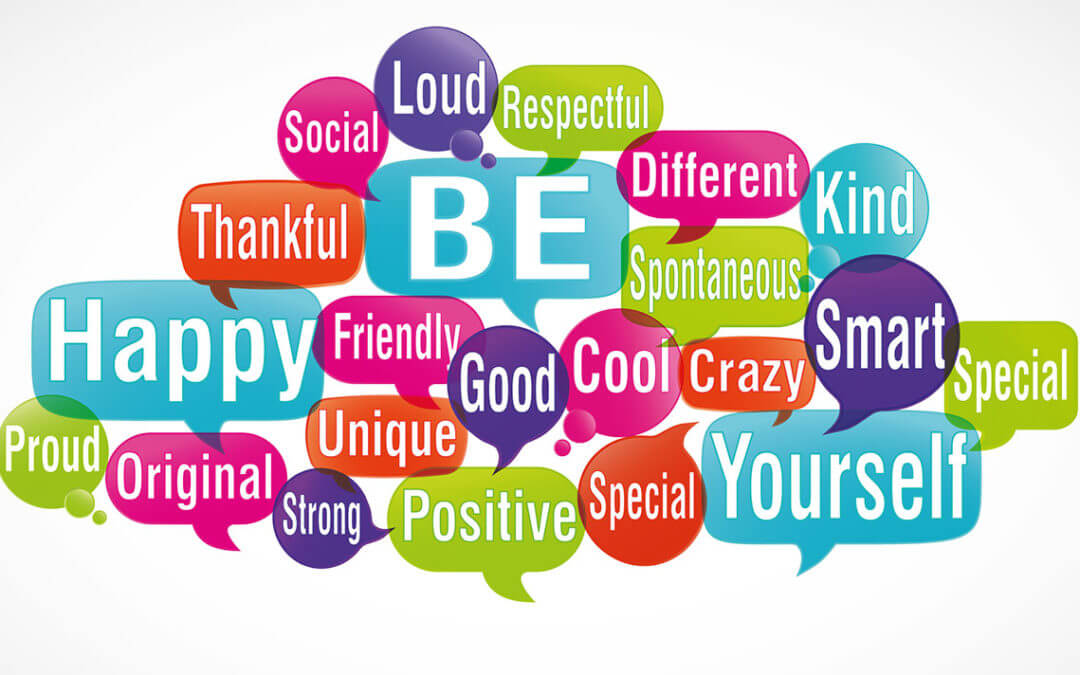Online etiquette, or netiquette, guides how we deal with others on the Internet. Online communication is much different than in person. Nuances in tone are lost to online readers. They don’t see or hear the indicators that describe your mood or intent.
Every day, billions of people interact online through articles, newsletters, podcasts, email, comments on blogs, and on social networks. We use these platforms for multiple purposes at the same time.
The Internet is a global space with people of various backgrounds, points of view, situations, cultures, and languages. If we’re going to be successful in our communications, we need to learn online etiquette.
What is Different About Online Communication?
When talking to someone in person you see facial expressions and hear the tone of their voice. You can tell instinctively if something is a joke, sarcastic, serious, or inquisitive. We can pick up on emotions or body language so we can know if something is said out of anger or fun.
These platforms are global. This means you might be talking to someone that uses words and systems differently from you.
With global communication in mind, let’s take a look at 19 tips to improve online etiquette.
1. Be Respectful of Others
Respect others rights and opinions. This doesn’t mean you have to agree with them, and it is okay to let them know that you don’t agree, but disagree in a respectful manner.
2. Be Positive
Negativity leads to more negativity. Be aware of how strong language, ALL CAPS, and exclamation points!!! can be perceived by readers. Be careful with humor and sarcasm. Not everyone will pick up on it. Strongly divisive opinions will almost guarantee an argument online.
3. Choose Images Carefully
Images can be taken out of context. People tend to take an image for face value and will take this as an indicator of your character. If you’re doing something embarrassing in the image potential employers will mistake your intentions.
4. Use Clear Language
Go for clarity and to-the-point writing. Avoid slang, shorthand, and abbreviations. They don’t mean the same thing to every audience.
5. Use Emoticons where Appropriate
If you say it clearly, choosing your words carefully, and using proper grammar and punctuation, your words can’t be taken differently than you intended. This is where emoticons can help.
In a professional environment I’d skip the emoticons, but in conversations with your friends they can help get your mood and reactions across.
6. Proofread
Grammar and spelling still matter – even to your friends. Bad spelling and grammar can even change the context, causing readers to get the wrong impression.
7. Learn the Tools
Learn to use the tools each platform provides and use them to the fullest. For example, if they provide stickers that can show the mood of your post, use them so others understand how to interpret your words.
8. Fact Check
Research something before sharing. Don’t post fake news, even about a person in your community, fact check first as you can do untold damage to an individual’s credibility and often times these people are not in a position to either defend themselves or are not even aware of such comments until its too late. Don’t be a follower of fake news, be a leader of the truth.
Don’t forward chain letters. Provide references where it could improve the conversation. Just because there is text next to a person’s photo doesn’t mean that person actually said those words. Even if they did say those words, there could be more to the story. We’re just seeing one phrase out of a conversation. Don’t post a portion of a quote and assume that’s all that’s needed.
9. Nothing is Really Private
You can think of social platforms as a place of business. They are public and you’ll encounter lots of people you don’t know. Your words have a larger audience because you can’t whisper. Not even private messages or a private wall that only your friends can see is really private. Anything can be screen-captured or repeated. If you wouldn’t say it over an intercom for all your co-workers and family to hear, don’t say it online.
Even if you control your privacy settings, be careful what you share. Inappropriate material is still inappropriate. Don’t share something you don’t want someone else to see. Just because you have privacy settings doesn’t mean it will remain private.
Never air out your personal relationships in public – especially online. If you do need to share something be sure to get permission from everyone involved. I don’t recommend responding to these types of posts, but if you do, make sure that you’ve heard both sides of the story first.
10. Don’t Connect with Just Anyone
You’ve probably heard the saying “birds of a feather flock together.” This is just as true online. If you have online friends who partake of shady business, others may assume you partake in their shady business.
11. Don’t Cold Sales Pitch
Don’t friend someone just for the purpose of pitching a sale. The idea that everyone is a lead is not true and sometimes over-zealous marketers can forget this.
Don’t pitch to someone’s wall or account. Unless they’ve expressed interest, don’t tag them in a sales pitch. Build a relationship first.
It’s okay to pitch when appropriate – when the person has expressed interest in a group and you’ve already had a conversation with them.
12. Don’t Break Trust
Never share someone’s private information.
13. Use Fake Names with Care
If you have to use a name that isn’t your given name, don’t use something insulting or inappropriate.
14. Respond to Others
If someone asked you something directly, don’t ignore them. At least acknowledge that you’ve seen the question and that you’ll either answer or not as appropriate.
15. Follow the Rules
Be sure to read and follow the rules of the platform or group. If someone isn’t following the rules, politely point them to the rules.
16. Keep it Short
This is true for email, posts on social media, and responses for social media, email, and blogs. People tend to skim and sometimes just look at a title or photo and think they know the context, and then they respond based on those assumptions. Put the most important information at the top and make the text easy to scan. Be succinct.
17. Think Before Sending or Posting
Think carefully about the content before sharing or sending it. Be sure that you’ve read something carefully enough. You can’t un-send an email. You can delete a post, but chances are high it will be seen first.
Most don’t read with the intent to understand. They read with the intent to reply. Avoid heavy bias as this can come across as illogical or divisive. Ask yourself if it really needs to be posted.
18. Protect Your Reputation
We share personal photos, opinions, videos, links to an article that we find interesting on just about any topic, and join in conversations about anything and everything. All of this “personal” sharing can make it easy to forget about professionalism. It’s easier to build a bad reputation than a good one. It can take years to earn trust and one post to ruin it.
19. Be Forgiving
It’s okay to disagree. Not everything is intentional. Not everyone will know the rules. Anyone can make a mistake and everyone deserves to be forgiven. If someone admits they were wrong and asks for forgiveness, forgive them and let it go.
Ending Thoughts
Following online etiquette makes the Internet a better place for everyone. It can protect both yourself and others. A relationship and a reputation are easier to damage than repair. This is just as true online. There are real people on the other end of the conversation. People with real problems, friends, family, and concerns. It can all be summed up in one thought: “do unto others as you have them do unto you.”
Do you have any online etiquette tips? Let us know in the comments.





